Apricot Oil For Skin: 5 Easy Uses For Hydration & Brightening
Keep inflammation, aging, and other skin issues at bay with this fruit-extracted oil.
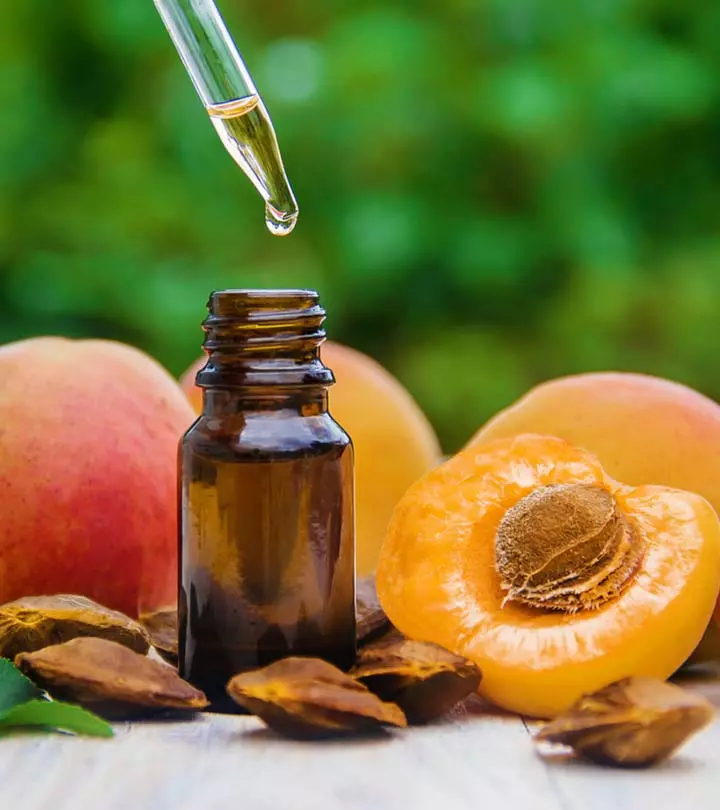
Image: Shutterstock
Among the long list of natural oils used for medicinal and cosmetic purposes, apricot oil is one of the less popular ones. You can use apricot oil for skin issues as it is packed with beneficial vitamins and antioxidants. It may fight free radicals to keep your skin protected and healthy. You can incorporate it into your daily skin care routine for more radiant and hydrated skin. Wondering how to use it? Read this article to learn how to use apricot oil and get an insight into its benefits.
 Know Your Ingredient: Apricot Oil
Know Your Ingredient: Apricot OilWhat Is It?
A light yellow oil derived from apricot kernels that has a slightly nutty aroma.
What Are Its Benefits?
It may help moisturize skin, combat inflammation, and brighten your skin tone.
Who Can Use It?
It can be used by all individuals and is safe for all skin types.
How Often?
You can use it twice or thrice a week for topical application.
Caution
It may experience redness, itching, and irritation in some people.
In This Article
What Is Apricot Oil?
Apricot oil is a natural oil extracted from the seeds or kernels of apricots (Prunus Armeniaca). In comparison to oils like jojoba and almond oil, it is very light and does not feel heavy or greasy on the skin. This oil is packed with healthy unsaturated fatty acids, especially oleic acid, which is great for the skin, and other beneficial compounds like phenols and tocopherols that have antioxidant properties (1). It may be helpful in keeping your skin soft and hydrated and in keeping acne at bay.
If you are wondering how beneficial this oil is for your skin, scroll down to the next section to learn more.
Key Takeaways
- Apricot oil contains many health-promoting nutrients, including vitamin E, vitamin A, vitamin C, fiber, and several fatty acids.
- It is a natural moisturizer, has emollient properties, and can be applied over time.
- This oil may also reduce dryness and treat irritated skin with its anti-inflammatory and antibacterial properties.
Why Is Apricot Oil Good For Your Skin?
Apricot oil is an excellent moisturizer and carrier oil. It has high levels of vitamin E, vitamin A, vitamin C, fiber, and essential fatty acids. The vitamins have nourishing and hydrating properties that keep the skin healthy, while the unsaturated fatty acids reduce inflammation. The oil also exhibits anti-aging, anti-inflammatory, and antimicrobial properties (2). Here are a few reasons you should include apricot oil in your skin care routine:
1. May Brighten Your Skin

Apricot oil is a good source of vitamins C and E, and these antioxidants help boost the skin cell turnoveri The ongoing biological process of removing old skin cells from the outer skin layers and replacing them with newer ones. , promoting a brighter complexion and even tone. They stimulate collagen production and prevent free radical damage (3), (4). They prevent pollution-induced tanning and pigmentation issues.
2. May Moisturize Your Skin
Apricot oil is used in cosmetics because of its emollient properties (5). It penetrates deep into the skin to prevent moisture loss and keep it hydrated. Since it is a good source of vitamin A and other fatty acids, the oil can strengthen the skin barrier, improve its texture, and restore damaged skin (6).
3. May Prevent Acne And Inflammation

Apricot oil has antibacterial, antifungal, and anti-inflammatory properties. It is effective against S. aureus and Candida albicans and other fungal skin conditions.
Applying apricot oil soothes and heals the skin and may also reduce inflammation to ease the symptoms of conditions like eczemai A persistent condition that flares up sporadically, leaving you with dry, itchy skin and weakened skin barrier function. and psoriasisi A non-contagious autoimmune disorder in which skin cells accumulate and develop into scales and dry, itchy areas. (7), (8).
4. May Reduce Aging Signs
Apricot oil may slow down signs of aging and boost circulation in the skin
. It is a source of vitamin A that may help minimize the appearance of wrinkles and fine lines, rebuild collagen, and tighten the skin (9). It may also improve the signs of photoaging. The oil’s antioxidant properties also protect your skin from further UV damage (7).
 Quick Tip
Quick TipIf you are wondering how to incorporate it into your daily skin care routine, here are a few tips.
Ways To Use Apricot Oil For Skin
1. As A Moisturizer

- Wash your face.
- Massage the damp skin with 2-3 drops of apricot oil in a circular motion.
- Leave it overnight.
- Repeat once every day.
2. As A Facial Mask
- Mix 2 tablespoons of apricot oil, 1 teaspoon of matcha powder, and 1 tablespoon of honey.
- Apply this mixture to damp skin.
- Leave it on for 10 minutes and wash off with warm water.
- Use it 2-3 times a week.
3. As An Oil Cleanser
- Mix a few drops of essential oils and 20mL of apricot oil.
- Massage your skin with the oil blend.
- Leave it on for 20 minutes and then rinse it off.
- Use it three times a week.
4. As A Sealant
- After finishing your skin care routine, massage your face with 2-3 drops of apricot oil.
- Leave it on overnight as it locks in all the goodness of the skin care products.
- Use it every day.
5. As A Massage Oil

- Mix 25 drops of any essential oil with 60 mL of apricot oil.
- Store the mix in a glass jar.
- Use this mixture for body massage before showering.
- Use it every day for soft and supple skin.
Claire Samuel, a beauty and lifestyle content creator, used apricot kernel oil on her face and achieved remarkable results. It made her skin softer and glowing than before. In her video, she said, “It is amazing. It gives your skin this soft feeling (i).” She applied it every night before going to sleep. She added, “In the evening, I wash my face and when it’s still a bit wet, I apply a few drops of apricot kernel oil. Then, I apply a face cream a little bit, and in the morning, I wash my face.”
 Quick Tip
Quick TipNow that you know the common ways to use apricot oil for your skin, you should also be aware of the risk factors associated with the oil.
Is It Safe To Use Apricot Oil For Skin?

Generally, it is considered safe for all skin types and is safe to be used in cosmetic products (10). However, if you are allergic, apricot kernel oil may irritate the skin and cause rashes and redness. Always do a patch test and avoid using it on the face if you are prone to pimples or acne.
Infographic: Best Ways To Use Apricot Oil For Your Skin
Discover the wonders of apricot oil for achieving supple and radiant skin! This incredible oil acts as a powerful repair agent and nourishes your skin from within. If you want to include it in your skin care regimen, check out the infographic below to unveil the myriad of amazing ways apricot oil can enhance your skin health.
Some thing wrong with infographic shortcode. please verify shortcode syntaxSumming It Up
Apricot is one of the least popular natural oils used for cosmetic purposes. However, it is loaded with antioxidants and beneficial vitamins, and you can use apricot oil for skin issues like dry skin and acne breakouts. The several benefits of apricot oil include moisturizing your skin, improving the glow, preventing acne, and reducing the signs of aging. You can use apricot oil as a facial cleanser, toner, massage oil, mask, or sealant. It is considered safe for all skin types, but you may experience side effects if allergic to apricot. Therefore, do a patch test before using it on your skin.
Illustration: Apricot Oil For Skin: Benefits And 5 Easy Ways To Use

Image: Stable Diffusion/StyleCraze Design Team
Frequently Asked Questions
Is apricot oil considered comedogenic?
Apricot oil is generally non-comedogenic, meaning it does not clog pores. This makes it a suitable choice for all skin types, including oily and acne-prone skin.
Which is better: apricot oil or almond oil?
Both apricot and almond oils contain vitamin E, which helps in collagen production and skin hydration (3), (5), (11). Almond oil has a higher vitamin E content than apricot oil, offering numerous almond oil benefits like enhanced skin elasticity, better hydration, and improved skin tone. On the other hand, apricot oil is lighter than apricot oil (12), (13). You can choose either oil as per your preference.
Is apricot oil light or heavy?
Apricot oil is a lightweight oil, which means it gets absorbed quickly by your skin.
Is apricot oil good for sensitive skin?
Yes, apricot oil has anti-inflammatory and antimicrobial properties that make it ideal for sensitive skin (2), (14).
Discover the amazing beauty benefits of apricot oil! Check out this video to learn about the top 10 uses of this oil and get glowing skin and thick hair naturally!
Personal Experience: Source
StyleCraze's articles are interwoven with authentic personal narratives that provide depth and resonance to our content. Below are the sources of the personal accounts referenced in this article.
i. Apricot kernel face oilhttps://www.youtube.com/watch?v=rQaZp2naZU0
References
Articles on StyleCraze are backed by verified information from peer-reviewed and academic research papers, reputed organizations, research institutions, and medical associations to ensure accuracy and relevance. Read our editorial policy to learn more.
- Apricot kernel characterization, oil extraction, and its utilization: a review
https://pubmed.ncbi.nlm.nih.gov/36778095/ - Medicinal Value of Apricot: A Review
https://www.ijpsonline.com/articles/medicinal-value-of-apricot-a-review-3531.html - Vitamin E in dermatology
https://www.ncbi.nlm.nih.gov/pmc/articles/PMC4976416/ - The Roles of Vitamin C in Skin Health
https://www.ncbi.nlm.nih.gov/pmc/articles/PMC5579659/ - Formulation and evaluation of wild apricot kernel oil based massage cream
https://www.phytojournal.com/archives/2019/vol8issue1/PartQ/7-6-70-996.pdf - Anti-Inflammatory and Skin Barrier Repair Effects of Topical Application of Some Plant Oils
https://www.ncbi.nlm.nih.gov/pmc/articles/PMC5796020/ - Chemical Composition and Antioxidant Properties of Oils from the Seeds of Five Apricot (Prunus armeniaca L.) Cultivars
https://www.jstage.jst.go.jp/article/jos/68/8/68_ess19121/_pdf/-char/en - Bitter apricot essential oil induces apoptosis of human HaCaT keratinocytes
https://pubmed.ncbi.nlm.nih.gov/26971222/ - Retinoids: active molecules influencing skin structure formation in cosmetic and dermatological treatments
https://www.ncbi.nlm.nih.gov/labs/pmc/articles/PMC6791161/ - Safety Assessment of Plant-Derived Fatty Acid Oils
https://journals.sagepub.com/doi/full/10.1177/1091581817740569 - Almond (Prunus dulcis) oil
https://www.researchgate.net/publication/332957892_Almond_Prunus_dulcis_oil - Almond oil
https://fdc.nal.usda.gov/fdc-app.html#/food-details/1103856/nutrients - Oil, apricot kernel
https://fdc.nal.usda.gov/fdc-app.html#/food-details/171032/nutrients - Chemical Composition and Antioxidant Properties of Oils from the Seeds of Five Apricot (Prunus armeniaca L.) Cultivars
https://www.jstage.jst.go.jp/article/jos/68/8/68_ess19121/_pdf
Read full bio of Dr. Divya Sharma
Read full bio of Swathi E
Read full bio of Anjali Sayee
Read full bio of Monomita Chakraborty






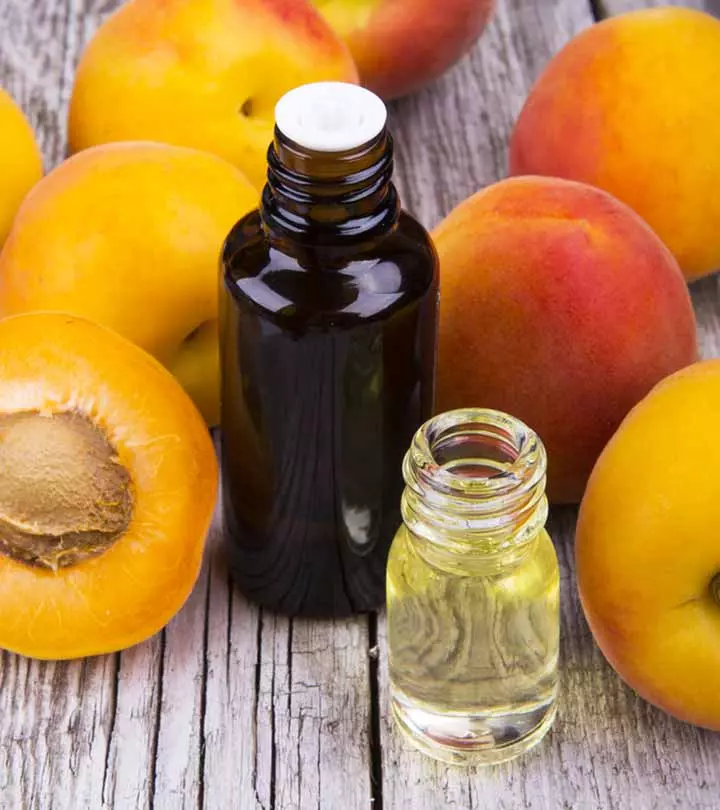




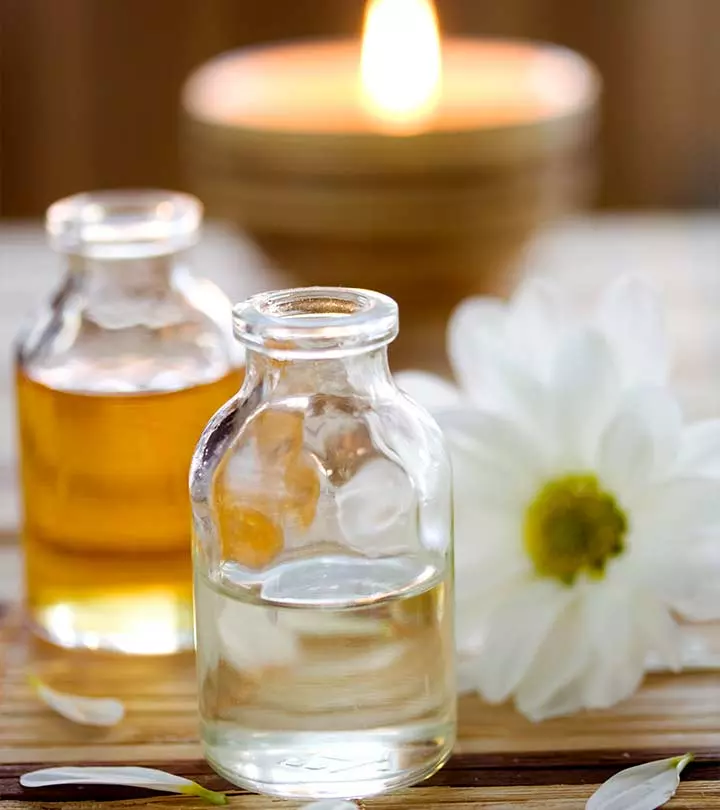
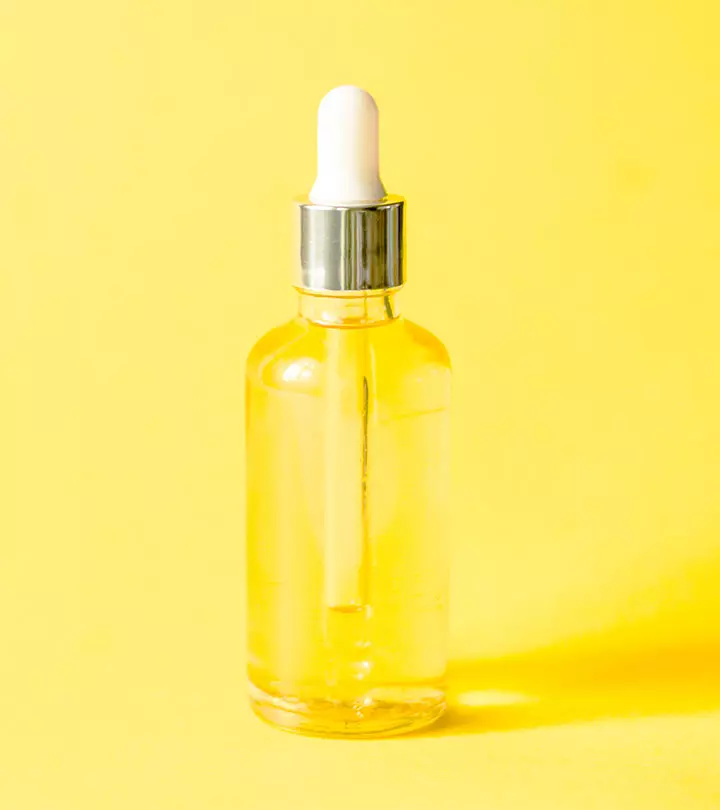

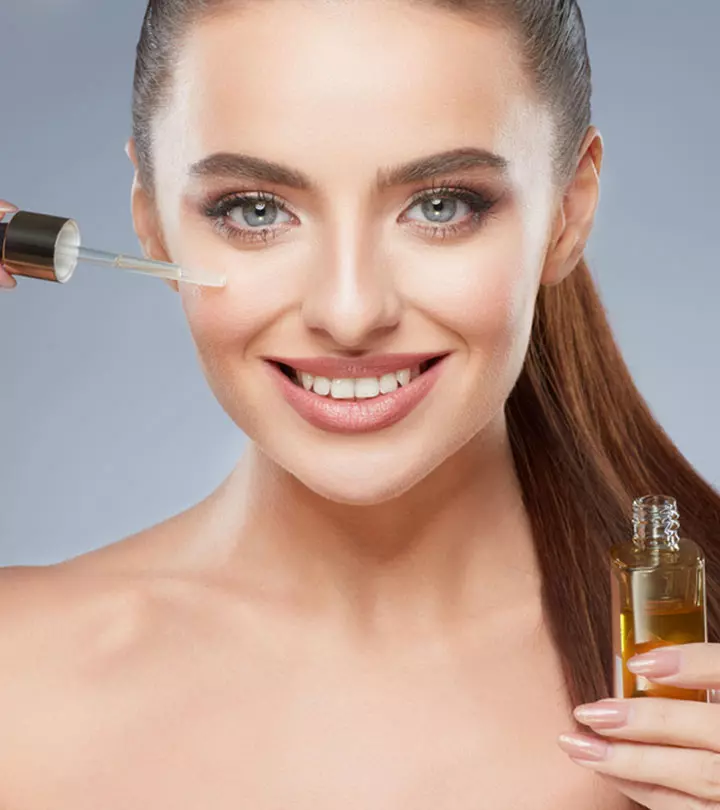
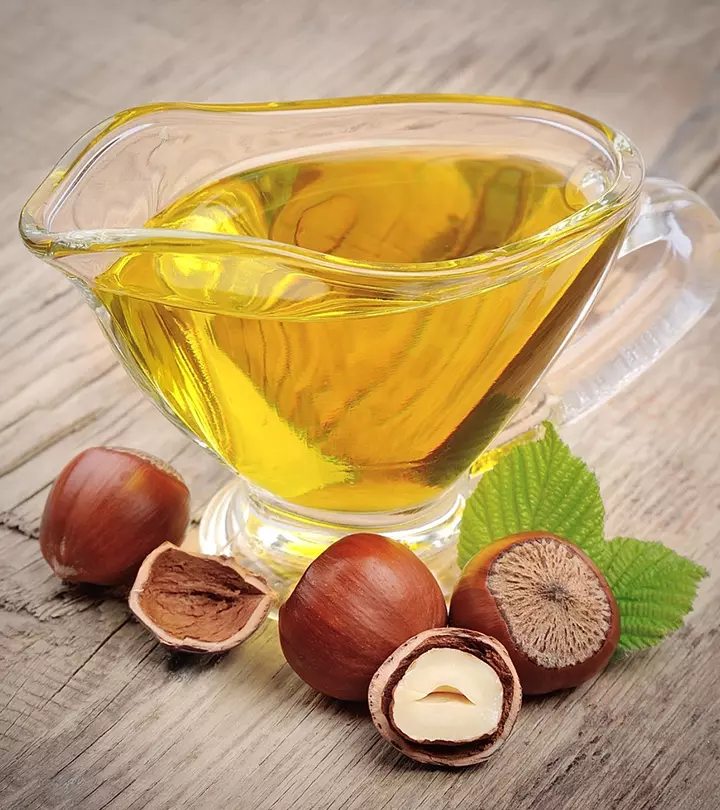








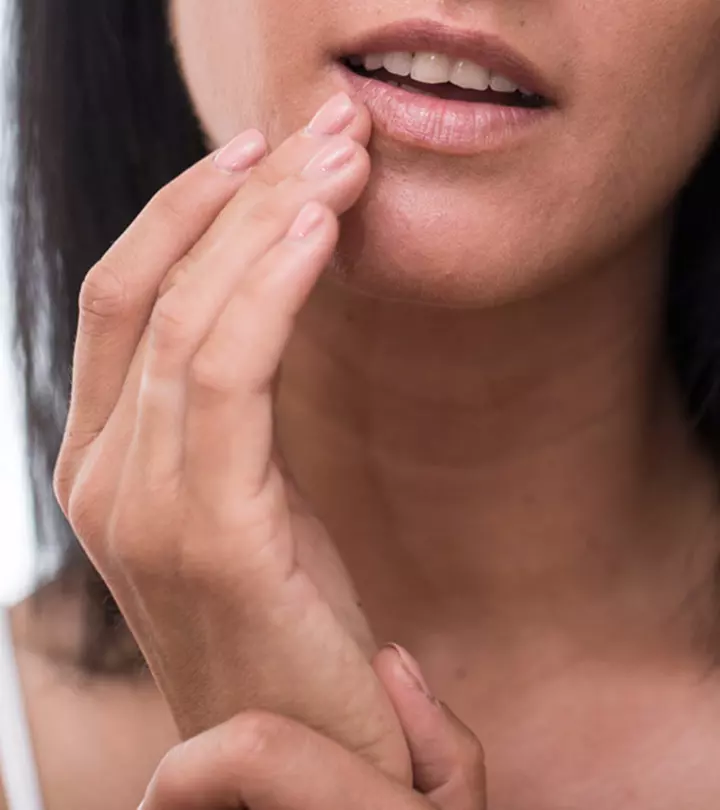
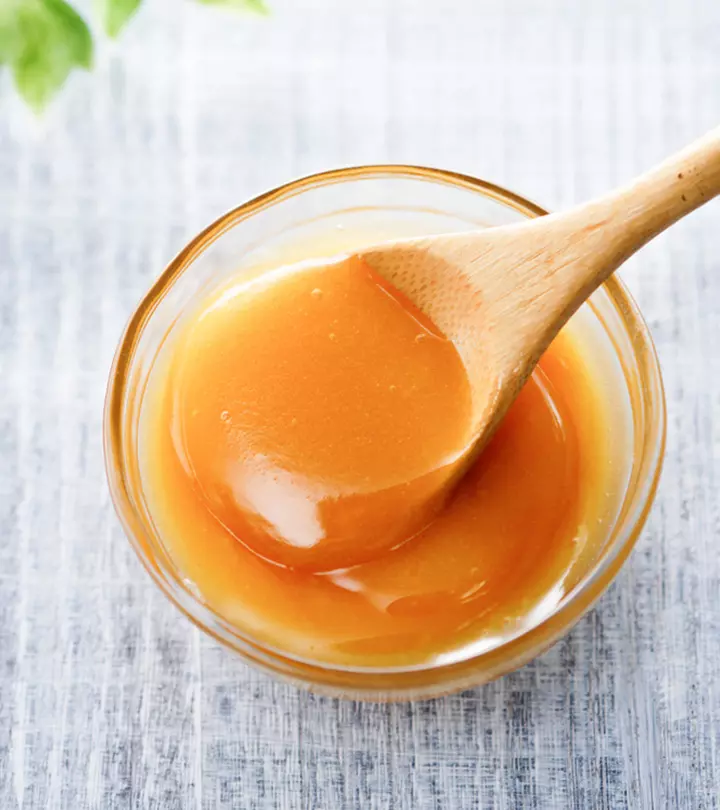
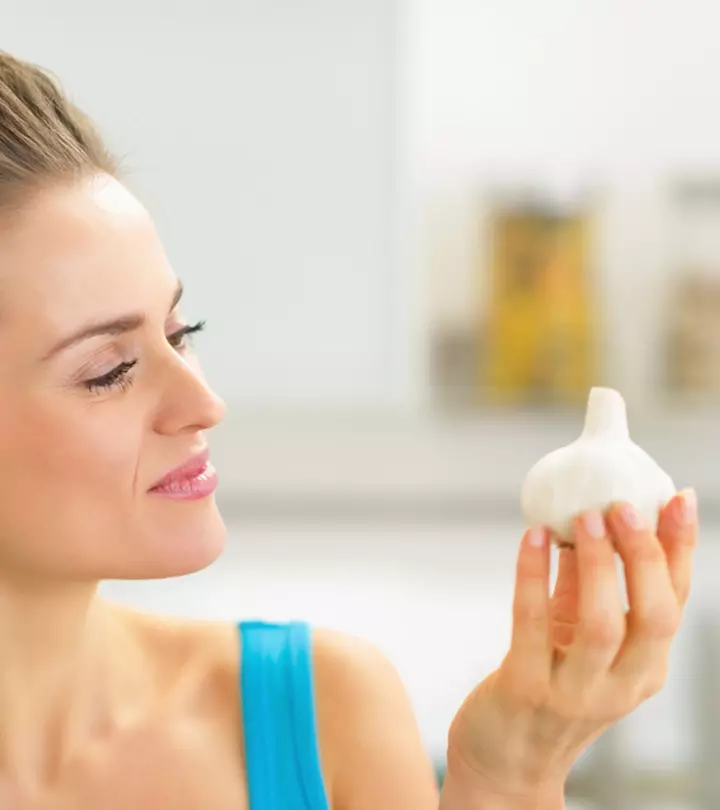
Community Experiences
Join the conversation and become a part of our empowering community! Share your stories, experiences, and insights to connect with other beauty, lifestyle, and health enthusiasts.